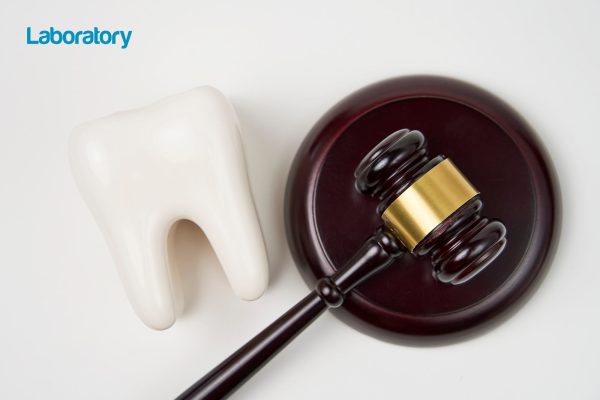Foods & Happy Hormones | Dr Ashwin Vijay
22/10/2025

Laboratory provides an update on its quest for clarity on illegal manufacture and invites you to share your thoughts on the way dental technicians are regulated.
Over seven months ago, Laboratory gave the General Dental Council (GDC), the Dental Technologists Association (DTA) and the Dental Laboratories Association (DLA) an outline of how it is believed that technicians and dental labs are regulated, and the consequences of that regulation. We asked these bodies to give their understanding and correct the information to form a statement of fact.
It seems this process has temporarily stalled while the GDC’s policy unit considers what the GDC’s policy is despite several attempts being made to garner a response. Readers may wonder why an organisation that is run on agreed, audited policy, is taking so long to write it down. After all, we should expect nothing less than clear and transparent policy, if professional registrants are expected to adhere to such policy.
So how exactly are technicians and labs regulated? It is difficult to say unless GDC policy is clear and open. Continuing confusion on social media on how dental technicians are regulated shows that there is a problem that needs addressing.
Laboratory is interested in finding out how you feel about the way you’re regulated. Given the question marks around illegal manufacture, we want to understand your feelings and perspective on where things currently stand.
To take part in this anonymous survey, click here.
Manufacturing dental devices under the GDC has to be some of the most highly regulated manufacturing in the world. But does it set a high standard? Is it possible to supply dentists with dental devices without GDC and MHRA regulation? Is the whole dental team being taught how to comply with the law? What is illegal dental manufacture? How is it dealt with? What data is being collected? All of these questions have been asked of our regulators and associations.
We do know that dental technicians are asked to gain a recognised qualification such as a degree, have indemnity insurance, fulfil CPD requirements, follow strict standards and, as many have found out, possibly face very stressful fitness to practise investigations. In return, are technicians entitled to ask how this fits in with the dental market, and for details on how they are regulated?
The GDC is audited by the Professional Standards Authority (PSA) and, sensibly, the way the GDC regulates must be transparent and consistent.
Many technicians and laboratories pay associations to provide them with information and represent them, but this begs several questions: have the associations asked regulators exactly what the law is, what regulator policy is, and how any laws are enforced? What is the GDC telling these associations, and what are the associations telling regulators on their members’ behalf? Have the answers been given to members? Is association policy based on what their members think?
The DTA has told its members that only dental technicians can sign the statement of manufacture. If this is correct, will the GDC confirm it in the statement of fact? The DTA has also said that, under GDC standards, registrants must report illegal manufacture to the GDC. The statement of fact will show what happens if they do.
The DLA has told its members to individually ask the GDC for its policy on key questions. If we get the answers, this will save you (and the GDC) time, and we can publish the answers in the statement of fact.
Click here to take our survey on illegal manufacture.
Follow Dentistry.co.uk on Instagram to keep up with all the latest dental news and trends.
Wellness360 by Dr. Garg delivers the latest health news and wellness updates—curated from trusted global sources. We simplify medical research, trends, and breakthroughs so you can stay informed without the overwhelm. No clinics, no appointments—just reliable, doctor-reviewed health insights to guide your wellness journey